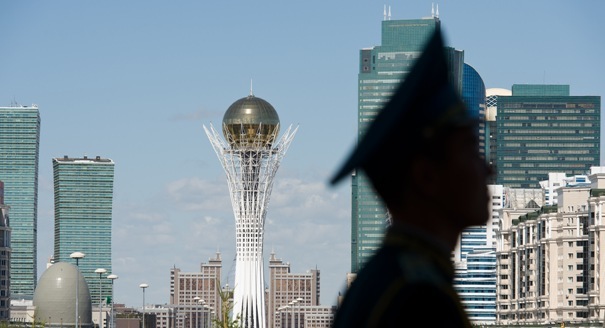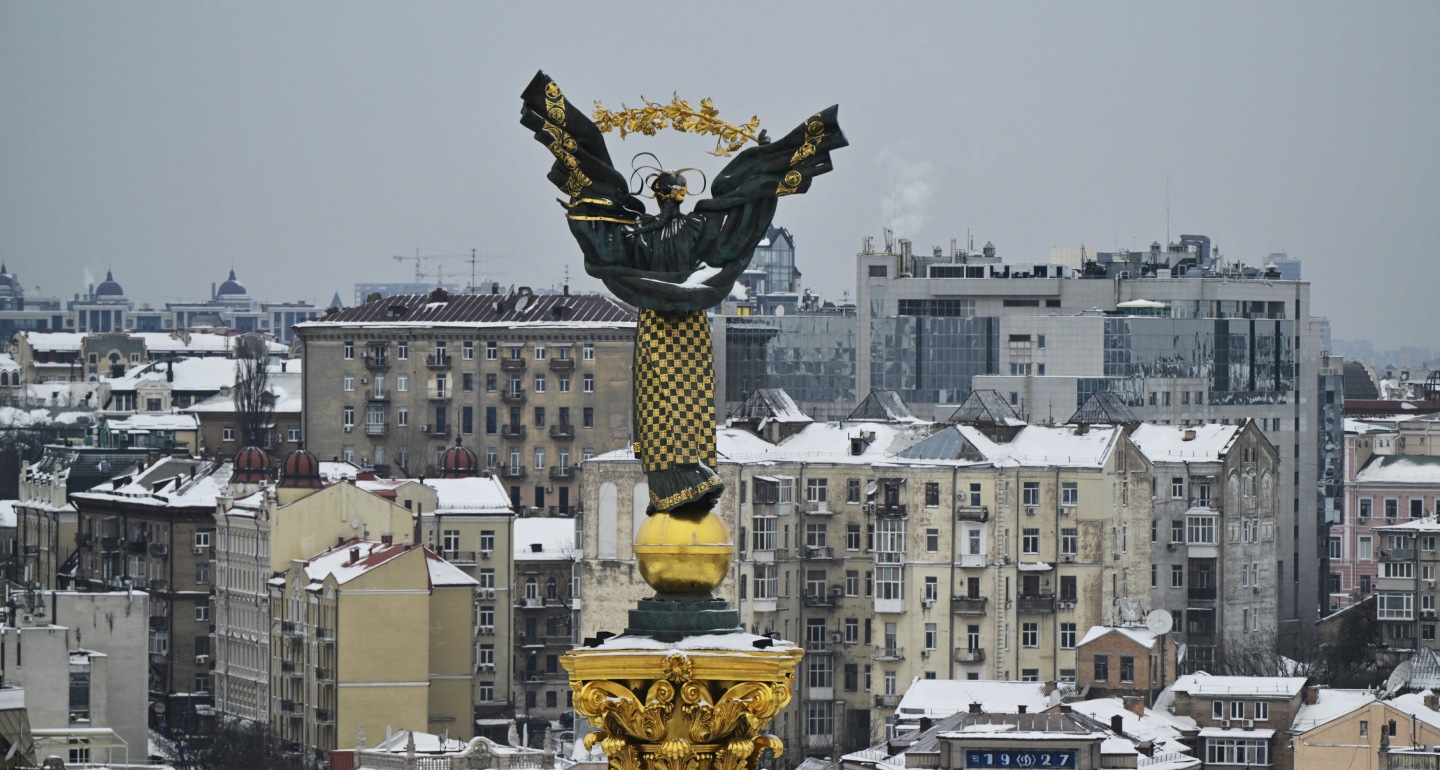Paul Stronski
{
"authors": [
"Paul Stronski"
],
"type": "legacyinthemedia",
"centerAffiliationAll": "dc",
"centers": [
"Carnegie Endowment for International Peace"
],
"collections": [],
"englishNewsletterAll": "",
"nonEnglishNewsletterAll": "",
"primaryCenter": "Carnegie Endowment for International Peace",
"programAffiliation": "russia",
"programs": [
"Russia and Eurasia"
],
"projects": [],
"regions": [
"Central Asia",
"Kazakhstan"
],
"topics": [
"Political Reform",
"Economy"
]
}
Source: Getty
Kazakhstan: Are Land Protests the Start of a Larger Wave of Discontent?
Recent protests against land reforms in Kazakhstan raise questions about whether the system that President Nazarbayev built can meet the country’s current challenges.
Source: Polish Institute of International Affairs
Kazakhstan’s governing model has been showing signs of strain in recent years, but these protests raise questions about whether the system that President Nazarbayev built can meet the country’s current challenges. The protests started over opposition to land reform proposals, but they now reflect growing anger at popular exclusion from governance, elite entitlement and pervasive corruption. This backlash is similar to protest sentiment elsewhere in Europe, Eurasia and North America where people increasingly feel that their countries’ long-standing political and economic systems are corrupt and benefit only the wealthy. In Kazakhstan, however, the fragility of the political system, protracted economic decline, and the lack of formal mechanisms for the population to influence public policy exacerbate the situation.
Why now? Kazakhstan’s economy is contracting due to low energy prices and several external factors, including the slowdown in the Russian and Chinese economies and disarray in the European Union. Foreign Direct Investment has declined steeply and the currency devaluation halved many Kazakhs’ purchasing power. This economic malaise undermines the social contract in which Kazakhs were promised improved living standards in exchange for an extremely limited say in how they were governed. The state now has difficulty holding up its end of the bargain.
The government’s tight control over media exacerbated the protests, which were fueled by rumors and alarmist social media reports that Astana was preparing to sell land to wealthy Chinese investors. Popular outrage over this prospect is worrying evidence that xenophobia and nationalism are on the rise. Astana has since scrapped the reforms and established a new land commission, while the police have largely refrained from using violence. Yet these positive steps are undermined by the continued detention of some activists, while the government’s ham-fisted efforts to discredit the protestors damage its own credibility. Dissent most likely will continue, although the exact form it will take is not yet clear.
This article originally appeared in the Polish Institute of International Affairs.
About the Author

Former Senior Fellow, Russia and Eurasia Program
Paul Stronski was a senior fellow in Carnegie’s Russia and Eurasia Program, where his research focuses on the relationship between Russia and neighboring countries in Central Asia and the South Caucasus.
- Russia’s Growing Footprint in Africa’s Sahel RegionArticle
- Russia in the Balkans After Ukraine: A Troubling ActorCommentary
Paul Stronski
Recent Work
Carnegie does not take institutional positions on public policy issues; the views represented herein are those of the author(s) and do not necessarily reflect the views of Carnegie, its staff, or its trustees.
More Work from Carnegie Endowment for International Peace
- Beijing Doesn’t Think Like Washington—and the Iran Conflict Shows WhyCommentary
Arguing that Chinese policy is hung on alliances—with imputations of obligation—misses the point.
Evan A. Feigenbaum
- A China Financial Markets PostCommentary
Description of the post.
Michael Pettis
- The Kremlin Is Destroying Its Own System of Coerced VotingCommentary
The use of technology to mobilize Russians to vote—a system tied to the relative material well-being of the electorate, its high dependence on the state, and a far-reaching system of digital control—is breaking down.
Andrey Pertsev
- Getting Debt Sustainability Analysis Right: Eight Reforms for the Framework for Low-Income CountriesPaper
The pace of change in the global economy suggests that the IMF and World Bank could be ambitious as they review their debt sustainability framework.
C. Randall Henning
- Notes From Kyiv: Is Ukraine Preparing for Elections?Commentary
As discussions about settlement and elections move from speculation to preparation, Kyiv will have to manage not only the battlefield, but also the terms of political transition. The thaw will not resolve underlying tensions; it will only expose them more clearly.
Balázs Jarábik








